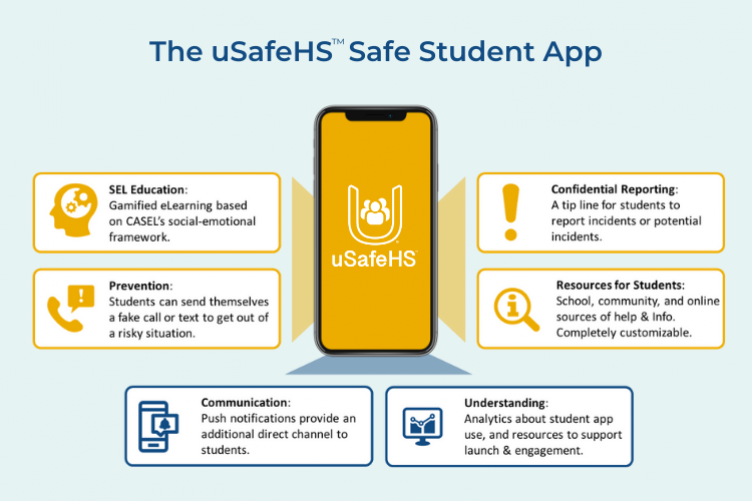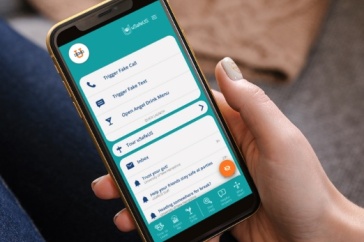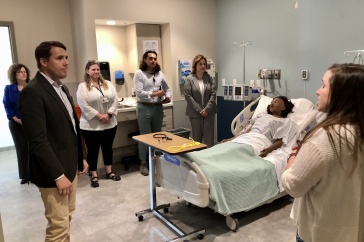
A new National Science Foundation grant will help UNH researchers launch a violence prevention solution for high school students that addresses relationship violence, bullying, harassment and more. With the $548,000 grant, UNH’s Prevention Innovations Research Center (PIRC) will launch and pilot uSafeHS™, a comprehensive, commercially viable high school violence prevention and safety app.
The app draws on PIRC’s extensive research into evidence-based measures to end relationship violence and builds upon the success of its uSafeUS® mobile app for college students. Currently used at 24 colleges and universities, uSafeUS® is acclaimed, but “feedback from colleges consistently told us that we needed to help students learn healthy behaviors earlier,” says Sharyn Potter, professor of women’s and gender studies and executive director of research for PIRC.
“Students have problems 24-7, so uSafeHS is with them 24-7 in a form students are most comfortable with — their phones.”
Now a prototype that was piloted at seven high schools this past year, uSafeHS™ addresses the five most common types of high school violence: hazing, bullying, sexual and identity harassment, as well as teen dating and sexual assault. Research shows that these negative behaviors, sometimes dismissed as “part of growing up,” affect more than their victims; if unchecked, they can escalate over time, putting an entire school community at risk for more serious forms of school violence.
“Students often don’t know what to do when faced with behaviors like bullying,” says Potter. Microlearning modules in the app, based on a social emotional learning framework identified by the Collaborative for Academic, Social, and Emotional Learning (CASEL), teach students how to respond safely, build positive relationships, and practice self-care. The learning is gamified to keep students engaged.
The app also includes Time to LeaveTM, an innovative feature of the college-focused uSafeUS® app that lets users send themselves a fake text or call, giving them a reason to leave an uncomfortable situation. In addition, uSafeHS™ gives students and high school administrators extensive, easily customizable school resources and research-informed sources of information, including a confidential tip line, which the U.S. Department of Justice deems a best practice for preventing school violence. An administrator dashboard gives schools insights into how students are using the app with analytics, helps them manage tips and enables them to send push notifications directly to student cellphones, offering schools an additional communication channel.
This is PIRC’s second NSF grant for this initiative; the first enabled the team to extensively research requirements and to build and test the prototype. With this three-year grant, they’ll take the app into 40 schools with the ultimate goal of widespread distribution and commercialization.
The app can be used both in the classroom to reinforce social and emotional learning as well as outside of school, to help students find evidence-based support and assistance even when there are no school staff nearby. “Students have problems 24-7, so uSafeHS is with them 24-7 in a form students are most comfortable with — their phones,” says Potter.
In addition to Potter, the all-female team from PIRC includes postdoctoral researcher Elizabeth Moschella; Michelle Lynch, director of technology product development and marketing; and project and customer coordinator Laurie Dawe. The team has partnered with developers Jonathan Shallow, a current UNH grad student and instructor, and T.J. Evarts ’20, who also designed and developed the uSafeUS® app. In this next phase of development, Potter’s team will partner with faculty and graduate students at Johnson C. Smith University, a historically Black university in North Carolina.
-
Written By:
Beth Potier | UNH Marketing | beth.potier@unh.edu | 2-1566


















































